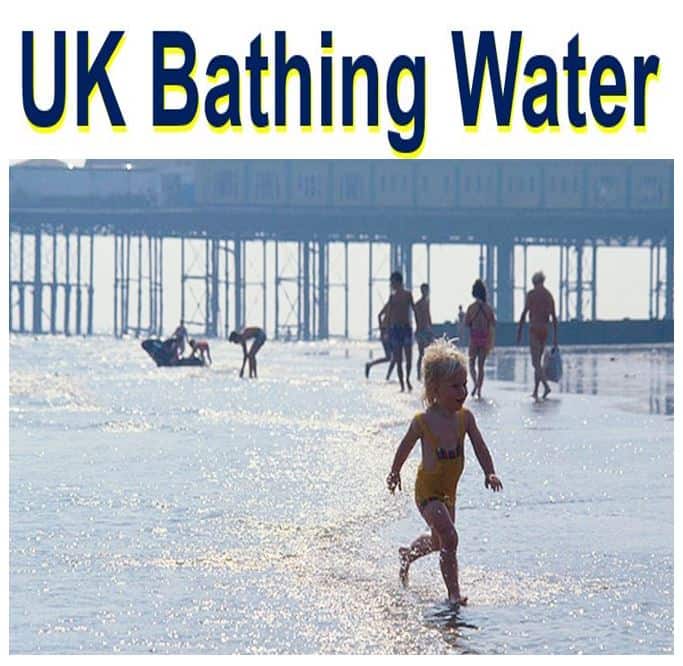Brexit puts many UK environmental laws – which the country had to comply with as a member state of the European Union – at risk, environmentalists fear. Not only are they worried about Britain’s commitment to the Paris climate change agreement, but also the country’s fishing industry, the quality of its drinking and bathing water, the air we breathe, as well as what the impact over the long-term will be for the country’s wildlife.
On 23rd June, the British people voted in a referendum and chose to leave the European Union by 51.9% to 48.1%.
Charity groups across the country, as well as climate change campaigners, said the Brexit result might have a ‘devastating’ effect on Britain’s environment, given that nearly three-quarters of environmental safeguards come from European Union legislation.
 Our bathing and drinking waters are now mostly clean and safe, thanks mainly to European Union legislation. There is a fear among environmentalists that we could slide back to being the ‘dirty man of Europe’ now we have left the bloc. (Image: Hastings Beach)
Our bathing and drinking waters are now mostly clean and safe, thanks mainly to European Union legislation. There is a fear among environmentalists that we could slide back to being the ‘dirty man of Europe’ now we have left the bloc. (Image: Hastings Beach)
Greenpeace worried about environmental legislation in UK
John Sauven, UK Executive Director of Greenpeace, said:
“Many of the laws that make our drinking and bathing water safe, our air cleaner, our fishing industry more sustainable and our climate safer now hang by a thread. But Greenpeace is determined that this country does not go back to year zero on environmental protection.”
Over the coming months and years we must demand that the British Government replaces European regulations protecting the environment and nature with new UK laws that are just as strong, environmentalists stressed.
There is a deep dread that whoever succeeds David Cameron will come from a school that supports ‘a bonfire of anti-pollution protections,’ the Greenpeace UK director said.
 British wildlife, especially many endangered species, relies on strong environmental laws. (Image: adapted from earthtimes.org)
British wildlife, especially many endangered species, relies on strong environmental laws. (Image: adapted from earthtimes.org)
There is a climate-change-denying wing in the Conservative Party – Brexit will make them feel that their hand has been strengthened, environmentalists believe.
Regarding the threat of the climate change deniers in Westminster, Mr. Sauven said:
“That means the green movement, indeed every Briton who values a clean and safe environment, may need to stand up for nature in the face of an attack on the natural world.”
“The environment barely featured in this campaign. Whoever comes to occupy Downing Street does not have a mandate to gut the environmental laws that we all rely on to protect us from pollution.”
Friends of the Earth urges Britons to start fighting now
CEO of Friends of the Earth since July 2015, Craig Bennett, said that the fight starts now, that is, if we want to make sure that Britain does not water down the environmental safeguards that the country has inherited from the European Union.
On the Friends of the Earth website, Mr. Bennett wrote:
“We must improve standards in order to protect our green and pleasant land. Future generations deserve no less. But some big name politicians will now use the referendum result to weaken wildlife protections.”
“This means some of the UK’s best loved wildlife sites at now in the firing line – including places like Cannock Chase, Flamborough Head, Dartmoor and Snowdonia. And the protection that the EU Habitats Directive gave to over 1,000 animal and plant species and 200 habitat types is now in danger.”
 Environmentalists fear that climate change deniers in Westminster will feel strengthened by the referendum result, and push to undo many of Britain’s environmental laws.
Environmentalists fear that climate change deniers in Westminster will feel strengthened by the referendum result, and push to undo many of Britain’s environmental laws.
Mr. Bennett emphasized that every environmentally caring Briton’s priority now is to ensure that our MPs – every single one of them – understand ‘loud and clear’ that the Brexit result is not a mandate to tear up our environmental protection.
Several green groups made the environmental case for remaining in the European Union. They said it is better to work together to address and combat problems that affect us all, such as air pollution, biodiversity loss and climate change.
Science and environment took backstage during campaign
Friends of the Earth said it provided evidence showing that it was thanks to EU legislation that our drinking and bathing water is cleaner, and that our country is no-longer known as the ‘dirty man of Europe.’
Unfortunately, the environment did not really get a look in during the campaign. Other vitally important themes, such as science and technology, were talked about very little during the weeks leading up to the referendum.
Britain is not leaving the planet. Let’s uphold the Paris climate deal and all it promises https://t.co/ZOGeSU9Ejx pic.twitter.com/CNbsIQVOkU
— Greenpeace (@Greenpeace) 27 June 2016
Scientists, engineers and researchers across the UK were shocked and dismayed on Friday morning when they learned that their people had voted to leave the EU. Britain has been a member state of the trading bloc since 1973 – in fact, very few working Britons remember being at their place of work when their country was not an EU member.
Even though the UK is among the top five science research and development countries worldwide, science and technology was talked about very little during the referendum campaign.
This is a pity, and perhaps a huge mistake. Science and technology are vital parts of our economy, they contribute to the nation’s wealth and provide millions of jobs.
Following the referendum result, Steve Cowley, Director of the Culham Centre for Fusion Energy near Oxford, said:
“This is a really serious worry for me. I fear desperately for U.K. science. There is no way I can pretend to be anything other than dispirited and disappointed.”
#Brexit is no mandate to become dirty man of Europe again, by @CraigBennett3 https://t.co/5RZvnXDKUa
— Friends of the Earth (@wwwfoecouk) 27 June 2016
PhD student Emily Morris, who is working on plant root development at the University of Nottingham, UK, said in an interview with the academic journal Nature:
“I am 9 months into my PhD and this result makes me terrified about my future in science. Many people are commenting that young researchers would be better off moving away from the UK now.”
“The atmosphere in the lab today is depressing. A day of grieving should be allowed but I hope by Monday scientists will be discussing initiatives to save UK science rather than how to jump ship.”
Imperial College London, a leading public research university, reacted with shock and alarm when it became clear that the electorate had chosen to Leave. Provost James Stirling and President Alice Gast broadcast the following email message to all staff and students:
“Imperial is, and will remain, a European university, whatever your view of the referendum outcome. We are very proud of the innovations, ideas and inspiration that come from the European members of Imperial’s global community.”
“We are determined that political changes will not hold Imperial back from delivering excellence in research and education for the benefit of global society. We will vigorously defend our international values if they are threatened and will continue to think and act internationally.”
“Our European students, staff and partners are crucial to the current and future success of this great university, and we look forward to continued strong ties with Europe and the world over the coming years.”
Are we in crisis? @natalieben shares her view on #Murnaghan https://t.co/3N44PxZA1m
— Murnaghan (@SkyMurnaghan) 26 June 2016
Green Party – Surge in membership applications
Green Party MP Caroline Lucas, who represents the Brighton Pavilion constituency, called on progressive parties to join forces to defend our environments and to ‘resist any attack on hard won rights’.
Since the referendum result, the Green Party has reported a surge in membership applications.
Ms. Lucas said:
“Britain has voted to leave the EU – but that does not give the Government a mandate to slash rights at work or cut environmental regulations. We now have a colossal fight on our hands to protect our environment and social protections from the worst instincts of Tory ministers.”
“We’ll be working with trade unions and others to guard their hard won rights at work and standing side by side with environmental movements resisting any attempt to weaken environment protections.”
BREGRET – a new word has emerged
A new word has emerged in the English language – BREGRET. It comes from combining the words BRExit and reGRET, and refers to the feeling of regret the morning after you voted to leave.
BREGRET refers to people who voted to leave and then changed their minds when they saw the pound and stock markets fall, pledges falling apart, the Prime Minister resigning, a deterioration in the country’s credit rating, financial institutions announcing plans to move out of London and into an EU member state (Financial Times article), and European/world reactions.
A petition to have a second referendum has attracted 3,648,158 signatures so far – and the number is rising rapidly.
Video – Brexit and the environment
Environmental issues will probably be put on a back burner in the UK as the country tries to reestablish itself after its people voted to leave the European Union.
